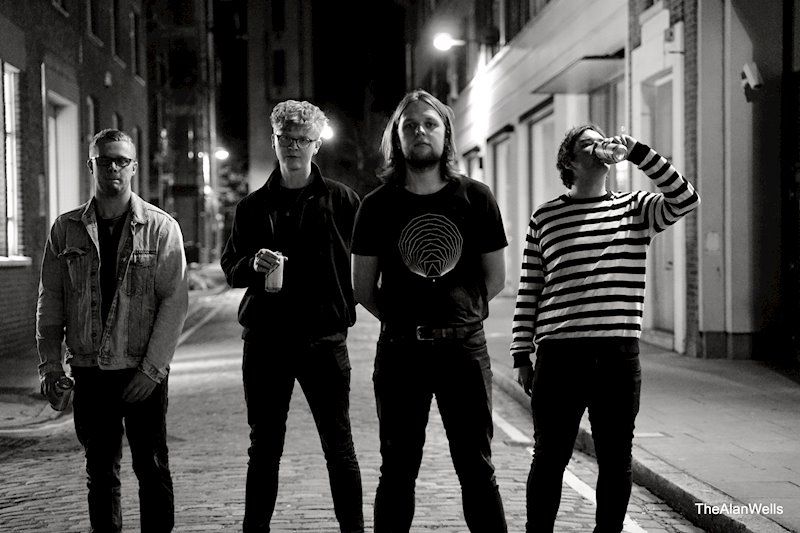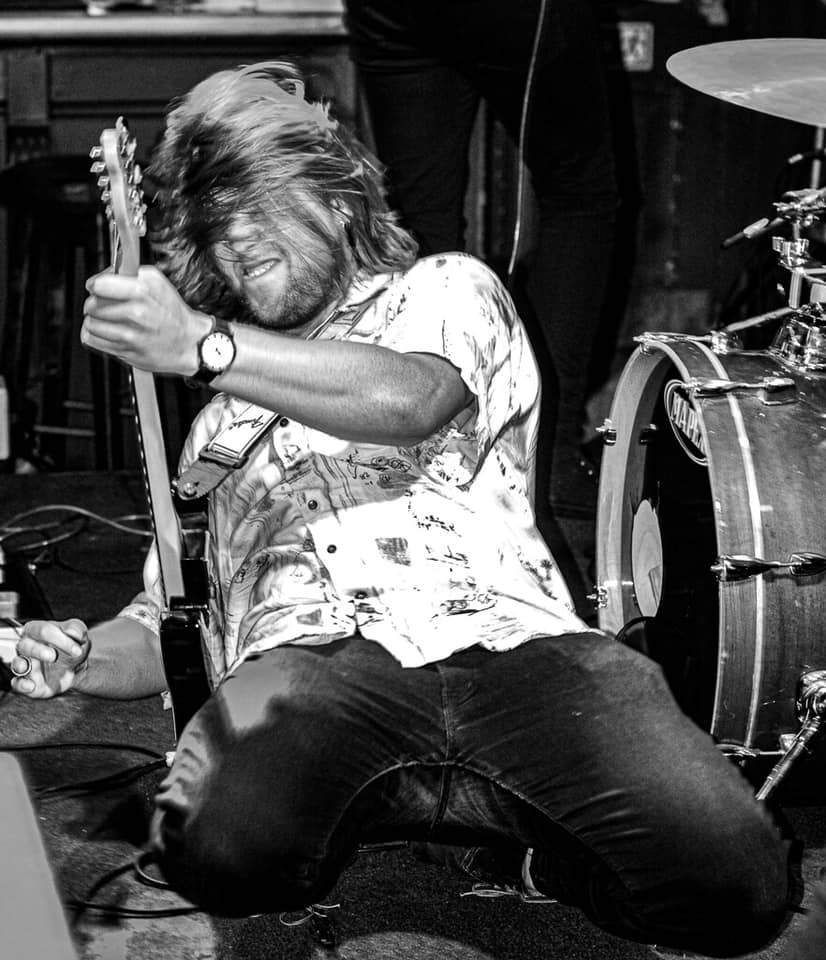Cavalcade - Getting on your feet as an indie-rock band

Cavalcade are a four-piece indie-rock band from London. Their head-banging sound is an eclectic blend of Arctic Monkeys, The Buzzcocks and the newest noise coming from the alternative scene. Regularly packing out venues in London, Bristol and beyond, Cavalcade have played at the Isle of Wight and Camden Rocks festivals and done tours overseas in Gibraltar and Spain. But wherever you see them, Cavalcade will play their bangarang with characteristic vigour. The electro-quartet consists of Connor Duggan (lead vocals/guitar), Jack Campbell (lead guitar/backing vocals), Tom Nunn (bass) and Steve Norris (drums). We spoke with the band about the difficulties of starting out as an independent group and how to get on your feet as young musicians.
How long has Cavalcade been a group, and how did the band come about?
Jack: Since 2017, it’s been about five years. Me and Connor have known each other since we were three. We came back from Uni and started playing guitar together and figured we might as well get into a studio and record some songs. From there, it just carried on to getting more gigs and eventually festivals.
What have you guys been up to recently, and what’s in the pipeline for the future?
Tom: We brought out an EP recently, “Swallow The Weekend”. It’s done pretty well. We got no. 2 in the alternative charts on iTunes.
Jack: I think it got no. 1 in the indie-rock charts and 16th in the album charts. As for gigs, we’ve just played at the Louisiana in Bristol, but we have Y Not Festival lined up for July.
Tom: And we’re touring around Gibraltar again in September. Hopefully we’ll be back in the studio soon and can bring out some new stuff.
What’s your general process from writing a song to taking it into the recording studio?
Jack: A song can start with each of us, really. “Kathmandu Kid” started when I picked up Tom’s bass and did the riff on it. Some have started from Connor writing a poem. Usually, we take a song that we all think is good and Steve will just make it even better by adding his mad drums. It’s a communal effort.
Connor: If a song makes us go nuts in the recording studio, that’s a good sign. If suddenly it clicks, and we all leave feeling excited then that might be something we’ll go forward with. If we enjoy playing it, then we will usually record it.
What are some of the best gigs you’ve played?
Steve: Isle of Wight was pretty sick.
Connor: Camden Rocks was my favourite.
Jack: Camden Rocks Festival 2019 may have been the turning point when we realised, we were actually alright. The security had to stop people getting in it was so rammed.
Connor: It’s a shame that festival doesn’t really run in the same way anymore. There was so much good music and so many good venues. We loved it there. But it’s gone down the same way as so many other things like it, unfortunately. I think it’s just not viable to run it anymore because the venues don’t get paid enough.

How do you go about getting gigs? Do people approach you or do you have to approach them?
Connor: We started off approaching people, usually through promotion companies, like Hotvox or various other London-based companies. We would send them samples of our stuff, saying that we are from London and looking for gigs. Now we are lucky enough that people approach us.
Tom: Now promoters will message us on Facebook, etc. So, you’ve got to make sure you have those channels open so that they can reach out to you. Now we’re trying to branch out a little and do things more independently.
Steve: Yeah, if you play with promoters then they take most of the money. If you can put together your own gigs, then you can keep the profit. It’s not like doing weddings and corporate events, there’s not a lot of money in it to start with. When you’re doing your own stuff, people are like “Who are you?”. Whereas other people will pay money to watch some women sing Ed Sheeran and stuff.
What sort of gigs would you normally look for?
Steve: We’re always looking to do our own gigs or indie nights. We’ve always played our own stuff, that’s just how it’s been. Plus, it’s like a night out. You enjoy the gig and people always buy you drinks after. If it’s an event or corporate thing, then it feels more like work. With covers, you can do very well with that. But it’s got a ceiling on it. That’s only ever going to go as far as a cover band will take it. With some exceptions, no one is ever going to get famous as a cover band or get their covers on the radio.
Jack: I would say that targeting support slots now is good for us. We supported Luka State who pretty much sold that gig out by themselves. So, we got to play for loads of people who we didn’t know, and our Spotify listeners went up massively. People were following us on Instagram and tagging us, wanting to come to gigs. So, to get on a support slot with a bigger band, is now what we’re looking to target.
Do you have any tips for building up a fanbase?
Tom: Don’t be mean. Make sure you always chat to people at your gigs and the people you play with.
Jack: We do Instagram and Facebook Live. We try to always keep people updated about new material and upcoming gigs. You certainly have to learn the craft. Having a good release plan is a really good idea. Sit on a song for 6 months if you have to, whilst you put together a campaign and really push it. Big up the story behind the song as well. What’s the message? You could also think about doing a single launch gig. We just used to throw songs out there and tell people to listen to it. We’ve gotten better than that now.
